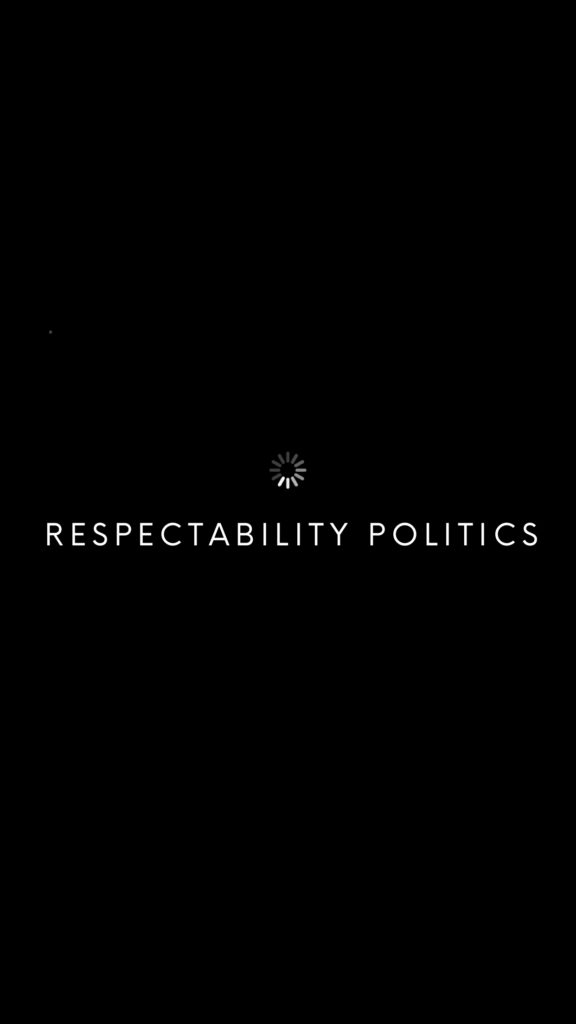The first time my sister Dee said it to me, I was visiting from the prestigious boarding school I had received a four year scholarship to attend. We were arguing about I don’t know what. We’ve always argued. As kids, as adults, long after I’d left our mother’s house, leaving her behind to deal with what I couldn’t and didn’t want to deal with anymore.
“You think you’re better than everybody.”
We were well into our thirties, both mothers when I finally responded with something besides a denial.
“No, you think I’m better than you.”
Her face fell. She grew red. A red that bloomed from where her chest was visible above her v-neck shirt, like the rage was rising from the balls of her feet.
“Fuck you,” she yelled and stormed out.
Now I wonder: Do I think I’m better than her?
Maybe.
***
My sister was the “smart one” growing up. We got similar grades (As and Bs) but I had to work hard for those grades. I stayed up late into the night studying for tests and writing papers. “Your sister doesn’t need to study.” My mother still likes to remind me.
When she got into the competitive performing arts middle school in our Brooklyn neighborhood, while I failed the admissions test, what I was always told and resisted was proven true.
In the fall of 1985, my sister Dee entered her 6th-grade year at I.S. 383 Philippa Schuyler Performing Arts School and I was left to finish the 5th grade at the grammar school we’d attended together. Up until then, she and I always attended the same schools. She was only a grade ahead of me, a year and half older, but light years ahead in confidence and daring. She was a writer who penned long poems and stories (and later novels). She was the “pretty one” or so I’d been made to believe, with her blonde hair and light brown eyes. She had the body, the brains and the confidence to go with it. I was her shadow, Dee’s sister, with scars on my knees and shins from climbing the plum tree in our backyard and falling off my bike and playing stickball and handball with the boys.
I hated that we would be attending different schools. I hated that she’d passed that admissions test and I didn’t. I hated what that proved about me. I didn’t know that was the year I’d grow into my own skin. It was when I freed myself of her. When I was for the first time Vanessa, not just Dee’s sister.
It was that year that I stepped out of her shadow and learned the shape and curves of my own image.
***
In that same middle school that we both graduated from, I was offered the opportunity to leave everything I knew and loved to attend a boarding school in Wellesley, Massachusetts. I accepted the four-year scholarship and now see that experience as what saved me and also what fucked me up in many ways.
It was there, in that wealthy, white, New England town, with its comfortable homes, its country club and the bucolic campus of Wellesley College, that I grew into my racial consciousness.
It was there, in 1989, when I was just 13 years old, that I had a lit cigarette thrown at me by a white man in a passing van, and told, “Go home, niggers.”
It was that same year that I learned that the only context they had of a Latina was Rosie Perez as Tina in Do the Right Thing, and try as I could, I couldn’t ignore hearing “Tawk, Rosie, tawk. We wanna hear you tawk” as I sped down the hall, my head down, blinking hard to keep the tears from falling. I couldn’t let them see me cry.
It was there, in 1990, that Celtics player Dee Brown was surrounded by nine police officers, five of them with guns drawn, and ordered to lie face down on the pavement. Later it was called a case of mistaken identity. Brown was said to resemble the man who had robbed a bank in the town the week before. The bank robber was described as a black man with a light complexion, between 6 feet and 6 feet 2 inches tall. Brown was 6 feet 1 inch tall, with dark skin.
It was there, in my junior year, that we woke up to swastikas and racial epithets spray-painted on cars in a parking lot just steps from our dorm.
I lived in a house on a hill on the outskirts of the Wellesley College campus, with the other scholarship kids. All black and brown girls from NYC, we were passed down stories of racism and bigotry, including word of an active KKK branch and racist teachers and neighbors. We were warned to be careful and alert. To stay in our lane. After all, we were scholarships kids. They were doing us a favor by letting us live there and attend their school.
One day, in my sophomore year, we walked into the president of the board’s mansion and came face to face with a life-size statue of an ape dressed in a tux, holding a tray, a wide, silly smile plastered on his face. I didn’t have the language then to know what exactly was wrong with what I was witnessing but we were all terribly uncomfortable while we ate and lounged in the pool. Later, we cut the visit short and back at our dorm, we whispered quietly to one another about what it was we saw and why we were so bothered by it.
The list of microaggressions and blatant racism is long. I was young and impressionable and left really damaged, and for a long time, I was ashamed of being brown and poor and from where I was from. That shame leaked into how I viewed my family, especially my sister.
My sister became a teen mom at 17. She eventually graduated high school but never went to college, and now says she was never into school. My sister has never tried to fit the model of what society says she should be. She peppers her speech with curse words and doesn’t try to code switch. She blasts music in her car and sings at top volume while sitting at a red light, and she will read anyone the riot act if they dare judge her. I’ve found myself more than once cringing at her behavior.
You see, what I was made to believe about myself and my people was only further reinforced at Columbia University where I was repeatedly mistaken for custodial staff. How could someone who looked like me possibly be a student? Then there was the professor who accused me of plagiarism though she couldn’t prove it because she didn’t believe there was any way I could have written the paper I wrote. I had to rewrite that paper. And there was the professor whose assignment was to write about something beautiful from where we were from. When he returned my paper about the neighborhood crackhead Teresa, he said, “This isn’t writing.” He didn’t have the cojones to look at me when he said it. There was no constructive criticism. No insight into how I could make the piece better. I didn’t write for a long time after that.
I encountered much of the same in corporate America and could list more examples. Suffice it to say that I internalized this shame and have had to work hard to unlearn it. I recently realized that despite all my efforts, I still have work to do.
***
Christmas 2017. We are in my aunt’s tiny one bedroom converted to a three bedroom with a constructed (& probably illegal) wall built to split the living room into two bedrooms. The room that’s intended as the bedroom serves as both living room and 3rd bedroom. The apartment has been in the family since the early 70s and rent control laws keep the rent at a percentage of what the new, mostly white gentrifiers now pay. It’s where our family dinners, birthdays, holidays and hangouts have always been held, people seated tightly in the living room, hallway and kitchen. It’s often the closest I ever am to my family, if only because the space demands it.
My sister and I haven’t spoken in a year. I can tell you my side but we both have our own narratives around it. What I know is that she called me on the night of Christmas 2016, and it turned into a screaming match. One of the hundreds we’ve had in our 40+ years as sisters. She revealed that she considers me and my writing “shit,” her words not mine. She demanded that I stop writing about our family. “Those aren’t your stories,” she yelled. Let’s be clear, there’s no way that’s gonna happen. I told her as much.
I also told her that much of the reason why I’m a writer is because of her. Because as a kid, I wanted to be everything she was: a writer, confident, proud and unapologetic. Her response: I don’t give a fuck.
A year later was the first time I’d see her.
We are all in the living room/bedroom. My cousin & uncle are flipping through the on-demand playing videos when they turn on Cardi B’s “Bodak Yellow.” My sister curls her lip, says, “Ugh, I can’t stand her. She’s so ghetto.” I gasped. Here was the most ghetto of ghetto calling someone ghetto. I was intrigued. I’ve never looked at Cardi B the same.
I confess I carry some shame for that.
Why?
Because I know the root is respectability politics that have been ingrained in me from when I was a scholarship kid in boarding school and a student at Columbia and worked in corporate America, where I was made to feel that I was too Latina and too ghetto and too much of too much. The root is white supremacy, and that shit is so hard to claw out of you, from under your skin, when you’ve spent a lifetime being told directly and subliminally that you are and your cultures are and your skin is and your language is inferior.
I was fascinated for a long time by Cardi while at the same time being annoyed and bothered by her. Why did she have to talk like that? And act like that? And be like that? Why couldn’t she be more refined and speak proper?
The question underneath these questions: why can’t she be more white?
My education has afforded me a proximity to whiteness that has at times made me remind people that I am Ivy League educated and at other times never mention it at all. The thing is no matter the degrees or accolades or books and essays and stories published; no matter how many panels I’m on or how I carry myself and enunciate my words and speak “proper”, I am always the other. I am always an outsider. Always brown. Always from the hood. It took me a long time to realize I didn’t want or need their acceptance. That who I am and where I come from, my people, my hoods and countries and music and food and ways of being and loving and surviving, are all beautiful and worthy and enough.
But the journey here has been a long and painful one. And I realized on Christmas day, in my aunt’s house, remnants of those wounds still live in me and affect my views and decisions.
I’m still on the road.
Thank you, Cardi B for making me check my own internalized racism and respectability politics.
And thank you to my sister for always checking me on my shit. I love you…if only from a distance. I may be the writer you wish you could have been, and maybe that’s the root of your resentment. Maybe that makes you think I’m better than you. Maybe that makes me think I’m better than you. Maybe we’re both at fault here. I don’t know, sis. What I do know is this: I can do this work for the both of us. Word.
 Vanessa Mártir is a NYC based writer, educator and writing coach. She is currently completing her memoir and chronicles the journey at vanessamartir.blog. A five-time VONA/Voices and two-time Tin House fellow, Vanessa has been widely published, including in Bitch Magazine, the VONA/Voices Anthology, Dismantle, and the NYTimes Bestseller Not That Bad, edited by Roxane Gay. Vanessa is the creator of the Writing Our Lives Workshop, which she teaches in NYC and online. She has served as guest editor of Aster(ix) and The James Franco Review. When she’s not writing or teaching, you can find Vanessa either on a dance floor, in a gym punching a bag or hiking in the woods. Find out what she’s planning next at: vanessamartir.com
Vanessa Mártir is a NYC based writer, educator and writing coach. She is currently completing her memoir and chronicles the journey at vanessamartir.blog. A five-time VONA/Voices and two-time Tin House fellow, Vanessa has been widely published, including in Bitch Magazine, the VONA/Voices Anthology, Dismantle, and the NYTimes Bestseller Not That Bad, edited by Roxane Gay. Vanessa is the creator of the Writing Our Lives Workshop, which she teaches in NYC and online. She has served as guest editor of Aster(ix) and The James Franco Review. When she’s not writing or teaching, you can find Vanessa either on a dance floor, in a gym punching a bag or hiking in the woods. Find out what she’s planning next at: vanessamartir.com Wendy Angulo Productions
Wendy Angulo Productions






